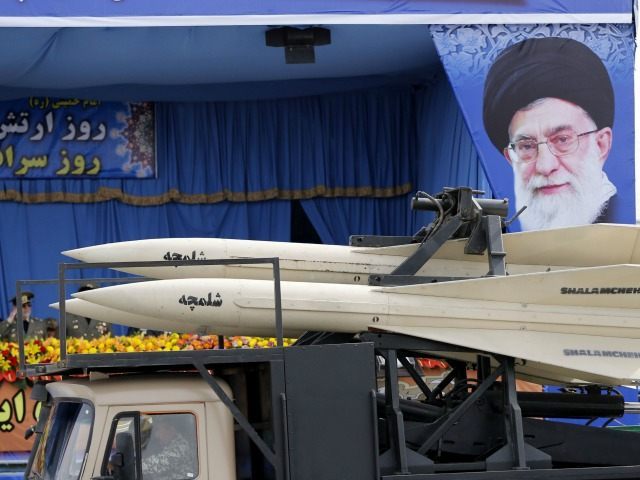TEL AVIV – The nuclear deal gives Iran “a highway to a nuclear arsenal” and has only served to bolster the Islamic Republic’s aggression across the region, Prime Minister Benjamin Netanyahu said Wednesday to U.S. Jewish leaders in Israel.
His remarks, at the Conference of Presidents of Major Jewish Organizations in Jerusalem, echoed those made earlier this week from the Munich Security Conference where he warned that the deal is no more than a “countdown to an Iranian nuclear arsenal” and that rather than moderating the Islamic Republic, the deal has “unleashed a dangerous Iranian tiger.”
“It has given them a highway to a nuclear arsenal. Not just to a nuclear bomb, but to an arsenal of nuclear bombs,” he told the American Jewish leaders. “So Iran is by far the most dangerous force in the region.”
He said sanctions relief would provide Iran with the means to create that arsenal.
“Understand that if nothing happens and the sanctions keep going down, tens of billions of dollars go into Iran’s coffers each year. We are talking about an extra trillion dollars to Iran,” he said. “They will be able to enrich uranium and that is the key part of making a nuclear bomb.”
Netanyahu vowed that Israel “will never allow Iran to develop nuclear weapons.”
The prime minister has slammed the deal’s “sunset clause,” which will lift Iran’s nuclear limitations within a decade, as well as the restrictions it places on the International Atomic Energy Agency’s access to inspect Iranian military sites. He has also warned against allowing Iran to develop ballistic missiles.
Netanyahu also blasted Tehran over the incursion of an Iranian drone into Israeli territory.
“It was a brazen and unprovoked attack against Israel. It is one of many unprovoked attacks in the region, from Syria, Lebanon, Gaza, Yemen,” he said. “We will never allow Iran to establish a base in Syria to attack us from.”
However, Netanyahu said that other Middle Eastern nations were allying themselves with Israel over shared concerns at Iran’s “aggression.”
“There are great changes in the region. Anyone with eyes in their head can see this dramatic change. It starts with the fact that most Arab countries see Israel not as their enemy but as an ally in facing challenges. The greatest challenge we face is from radical Islam,” he said. “They are concerned with Iran’s aggression and that aggression is growing. The Iran nuclear deal both enriched Iran and increased Iran’s aggression.”
The Iranian drone entered Israeli airspace on Saturday, February 10, and remained there for a minute and a half before being downed by a combat helicopter. In response, Israel launched airstrikes on 12 Syrian and Iranian targets in Syria, including three air-defense batteries and four Iranian targets such as the control center that launched the drone, marking what IAF Air Staff Commander Brig. Gen. Tomer Bar said was “the biggest and most significant attack the air force has conducted against Syrian air defenses since Operation Peace for the Galilee” in 1982 during the First Lebanon War.
Syria responded with a barrage of missiles that resulted in the downing of an Israeli F-16 in which two pilots were injured, one seriously and another lightly.

COMMENTS
Please let us know if you're having issues with commenting.